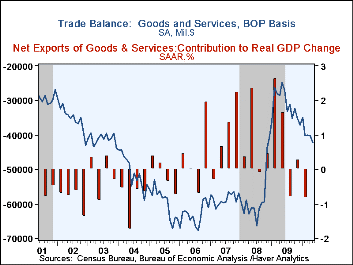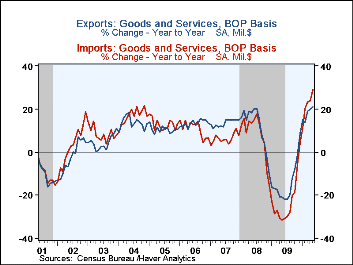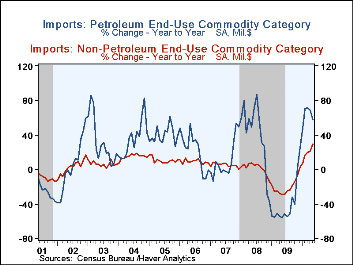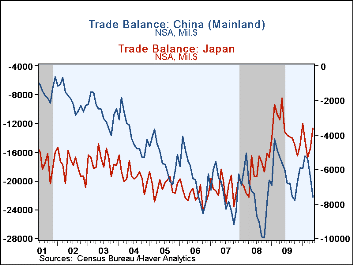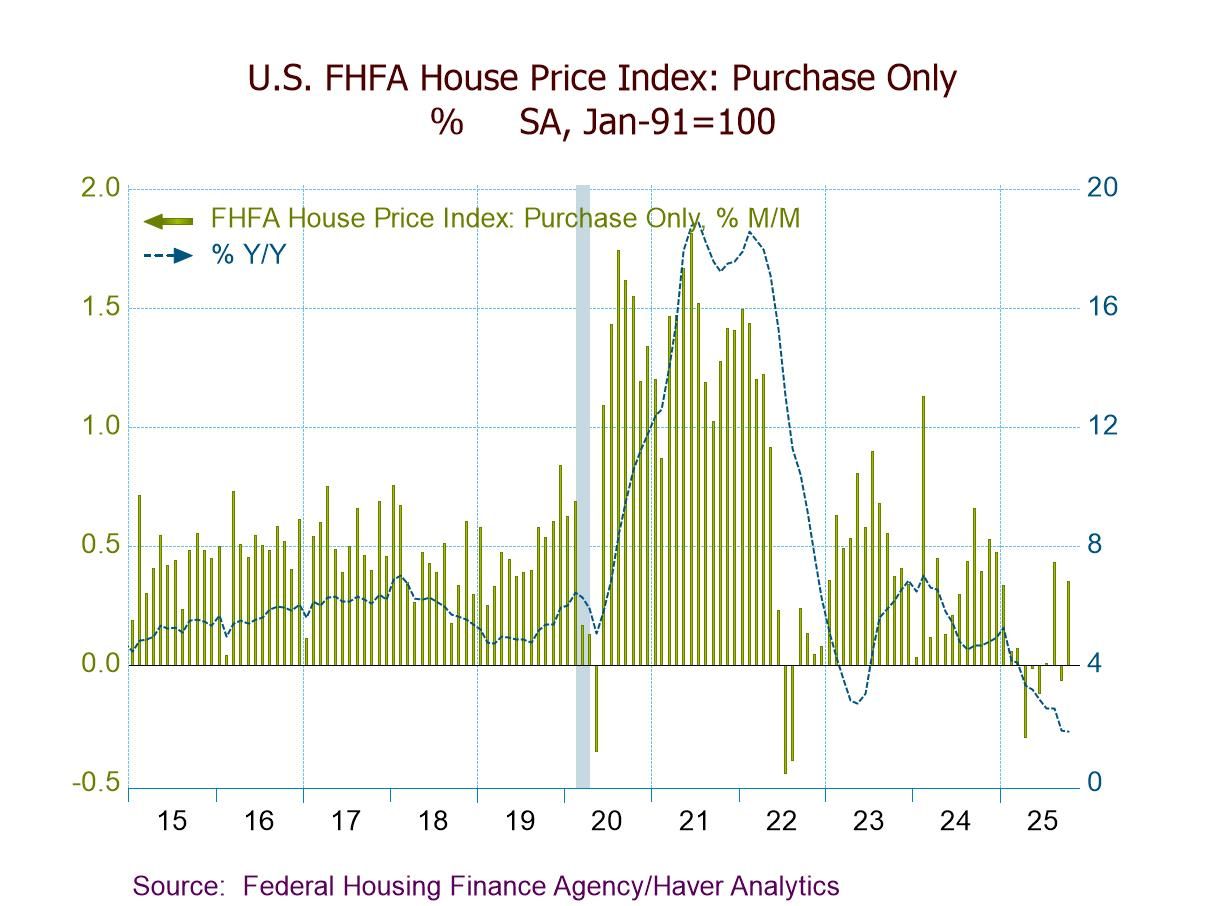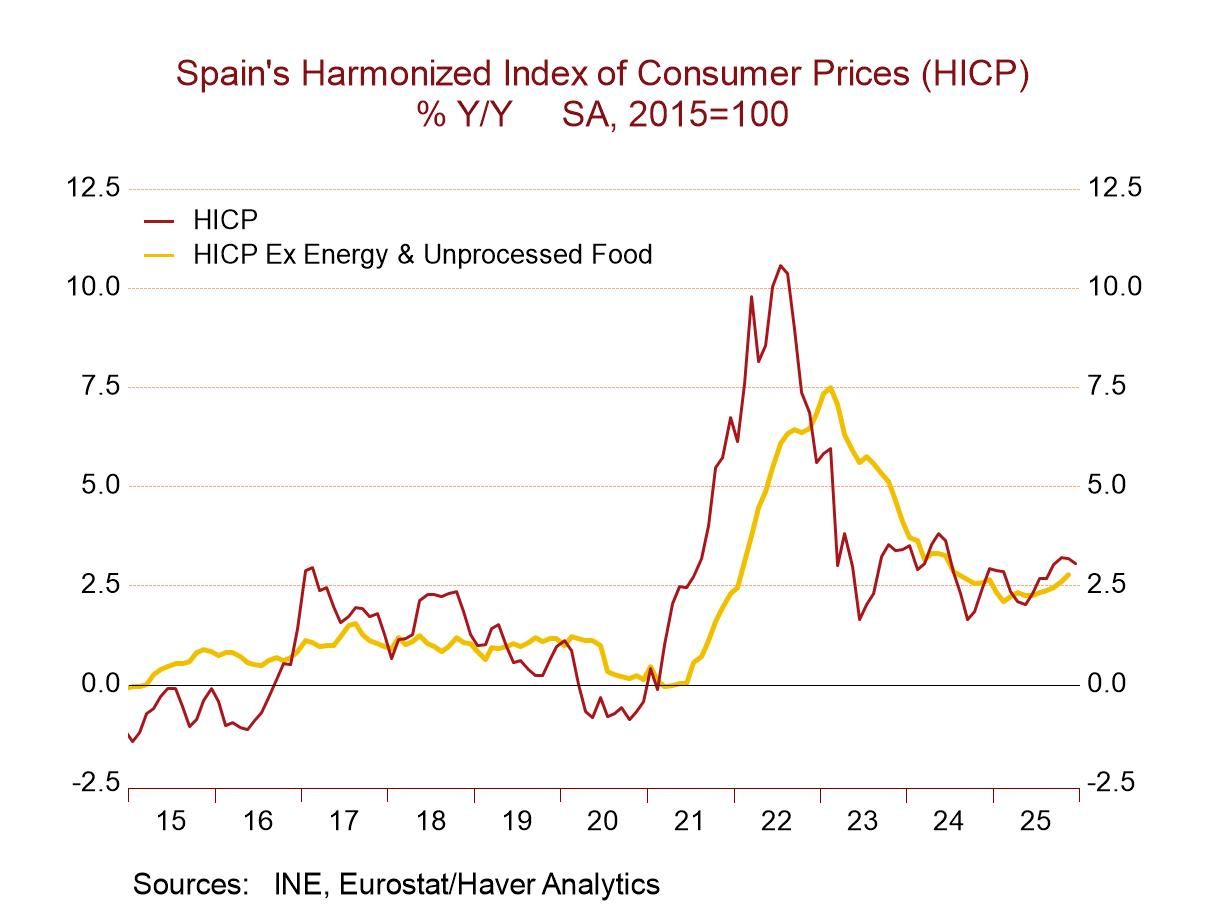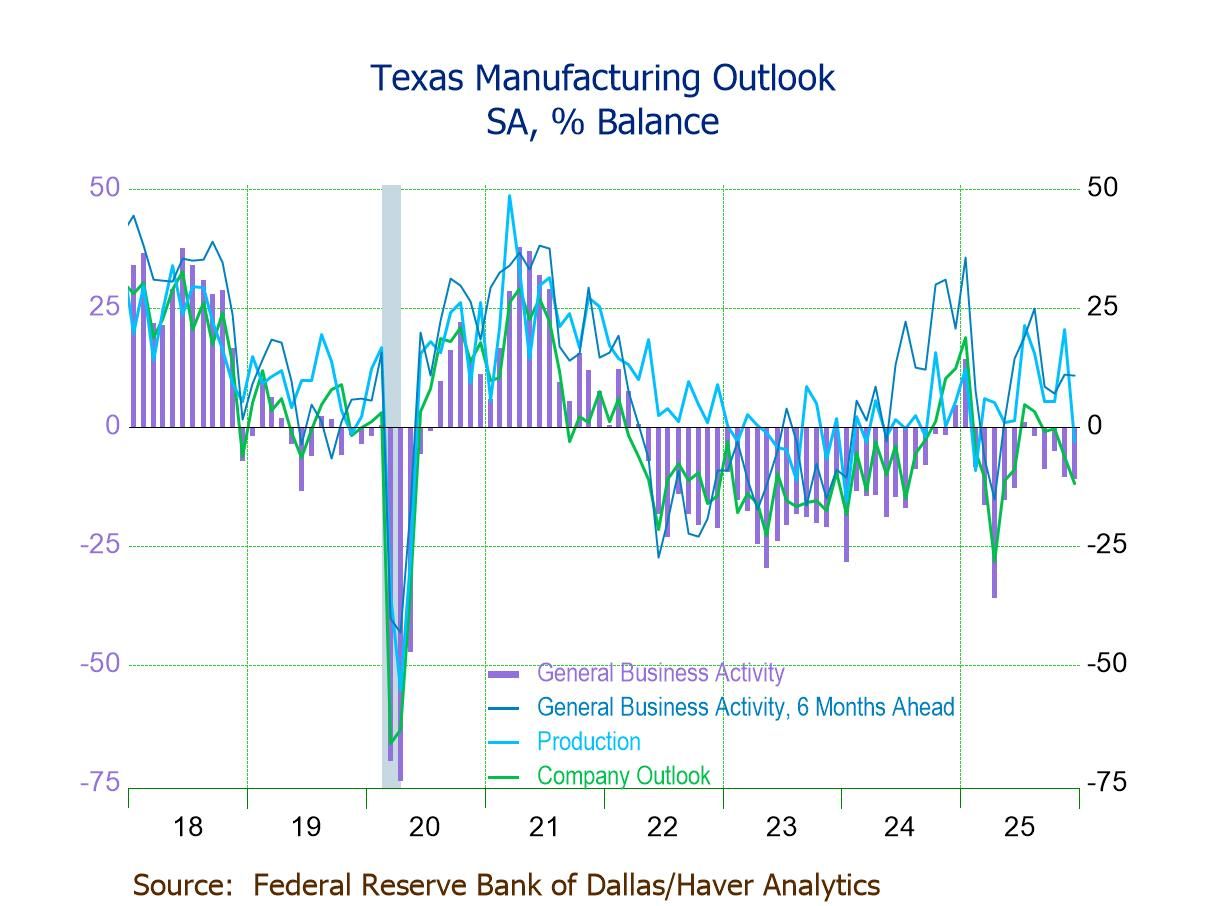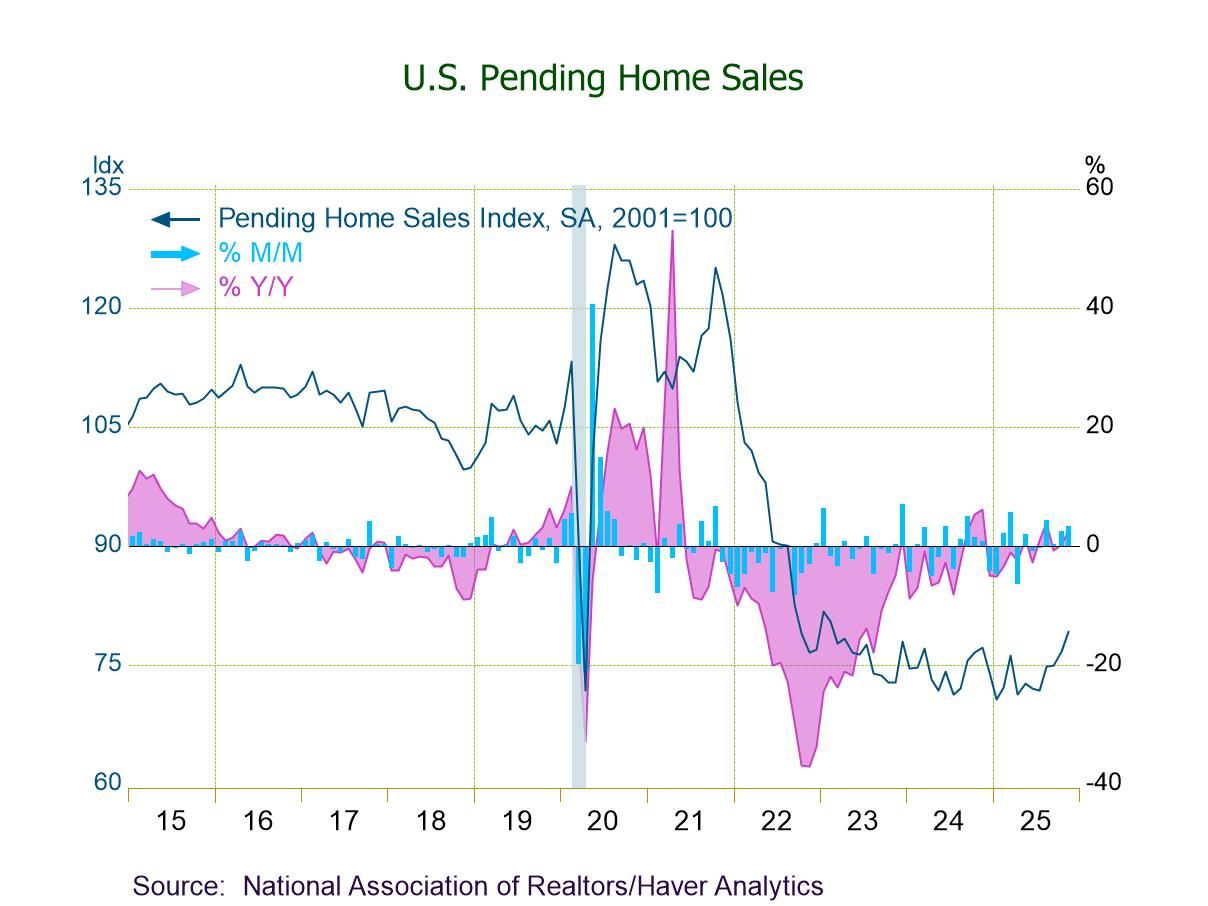 Global| Jul 13 2010
Global| Jul 13 2010U.S. Trade Deficit Deepens Slightly Month over Month and Still Is Sharply Deeper Than Last Year
by:Tom Moeller
|in:Economy in Brief
Summary
A stronger U.S. economy continued its effect of deepening the U.S. foreign trade deficit during May. The deficit of $42.3B followed an unrevised April figure of $40.3B. The latest figure was the deepest since December 2008 and [...]
A stronger U.S. economy continued its effect of deepening the U.S. foreign trade deficit during May. The deficit of $42.3B followed an unrevised April figure of $40.3B. The latest figure was the deepest since December 2008 and exceeded Consensus expectations for a deficit of $39.2B.
A healthier economy was evident in a 6.1% increase in nonoil imports which raised them 29.5% from last May. The monthly gains in nonoil imports have improved significantly since last July when the U.S. economic recovery began. May imports of nonauto consumer goods rose 7.0% (13.8% y/y) while imports of capital goods jumped 5.5% (29.5% y/y). Auto imports also jumped 12.8% and they've nearly doubled since last year. Weakness in oil prices caused oil imports to fall 9.1% but they're still up by more than half since last year. The per barrel cost of crude petroleum was $76.93 and in real terms, oil imports fell 8.4% during May (+6.2% y/y). Imports of services rose 1.9% (9.4% y/y) as travel imports were again firm (12.2% y/y). Passenger fares also were strong (15.3% y/y) as were imports of other private services (10.7% y/y).
A lower value of the U.S. dollar was evident in a 2.4% jump (21.0% y/y) in exports. Capital goods exports were quite strong with a 5.5% increase (21.3% y/y). A 2.6% gain (11.1 y/y) in nonauto consumer goods exports made up most of an April decline while auto exports jumped 1.5% (66.2% y/y) for the third straight month. Services exports also were strong posting a 1.3% increase (9.6% y/y). The lower value of the dollar encouraged visits to the U.S. and travel exports rose 12.2% y/y while passenger fares rose 15.3%. Exports of other private services rose 10.7%.
By country, the trade deficit with mainland China deepened to $22.2B, its deepest since October. Trade with China surged as exports jumped more than one-quarter y/y and imports rose the same amount. The trade deficit with Japan narrowed a second month to $3.6B. Imports rose by 43.2% y/y with U.S. economic recovery and exports rose 21.6% y/y. With the European Union, the trade deficit deepened slightly to $6.2B as exports rose 8.2% y/y but imports jumped 23.1%.
The international trade data can be found in Haver's USECON database. Detailed figures are available in the USINT database.
| Foreign Trade | May | April | March | Y/Y | 2009 | 2008 | 2007 |
|---|---|---|---|---|---|---|---|
| U.S. Trade Deficit | $42.3 | $40.3B | $40.0B | $24.8B(5/09) | $378.6B | $695.9B | $701.4B |
| Exports - Goods & Services (m/m) | 2.4% | -0.7% | 3.8% | 21.0% | -14.6% | 11.5% | 13.2% |
| Imports - Goods & Services | 2.9 | -0.4 | 2.9 | 29.1 | -23.3 | 8.0 | 6.0 |
| Petroleum | -9.1 | 0.3 | 6.0 | 57.3 | -44.0 | 37.0 | 9.4 |
| Nonpetroleum | 6.1 | -0.5 | 3.2 | 29.5 | -20.9 | 1.5 | 4.8 |
Tom Moeller
AuthorMore in Author Profile »Prior to joining Haver Analytics in 2000, Mr. Moeller worked as the Economist at Chancellor Capital Management from 1985 to 1999. There, he developed comprehensive economic forecasts and interpreted economic data for equity and fixed income portfolio managers. Also at Chancellor, Mr. Moeller worked as an equity analyst and was responsible for researching and rating companies in the economically sensitive automobile and housing industries for investment in Chancellor’s equity portfolio. Prior to joining Chancellor, Mr. Moeller was an Economist at Citibank from 1979 to 1984. He also analyzed pricing behavior in the metals industry for the Council on Wage and Price Stability in Washington, D.C. In 1999, Mr. Moeller received the award for most accurate forecast from the Forecasters' Club of New York. From 1990 to 1992 he was President of the New York Association for Business Economists. Mr. Moeller earned an M.B.A. in Finance from Fordham University, where he graduated in 1987. He holds a Bachelor of Arts in Economics from George Washington University.


